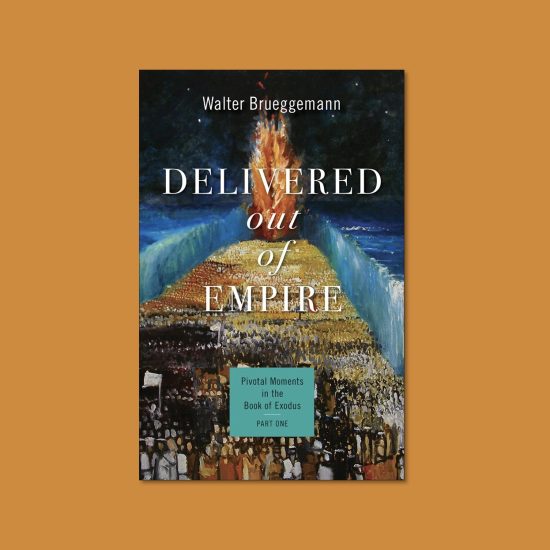
 The First Plague
The First Plague
Formations: February 16, 2020
Scripture: Exodus 7:14-25

Michael K Olmsted
“Why doesn’t God do miracles today like when Moses was having a hard time? Wouldn’t it be better for everybody if God just smashed all those evil commies and murderers?”
Those words came out of the mouth of a fifth grader who wanted me to explain why God allows evil to exist in our world. The answer is not simple, but it begins with our understanding of the God of grace who began revealing himself to humankind, from the garden called Eden all the way to the cross and resurrection of Jesus.
Moses and Israel’s exodus offer a startling and insightful glimpse of our need for God’s love.
Today we look at the first of ten plagues, each one focused on one of Egypt’s false gods, concluding with a vision of the God of eternity who loves and cares for a people who are imperfect, impatient, and in need of his grace.
The first nine plagues are more than “natural” disasters. They are evidence that for all of Egypt’s power as a nation, and for all the supposed gods worshiped by Egypt, the God of Moses cannot be defeated. Pharaoh cannot admit that the murderous slave, Moses, could ever win this fight. There is a not-so-sublime contrast between human arrogance and a life based on the love of God.
We have our own modern pantheon of gods: greed, power, pride, racism, sex, wealth, success, fame, and happiness by our own definition. We wonder if this first curious plague, the turning of the Nile River into blood, caught Pharaoh when he was celebrating Hapi, the god of the Nile? The day was coming when, free from the oppression and hopelessness of Egypt, Israel will hear the unmistakable foundation of how to be God’s chosen people: “Hear, O Israel! The Lord is our God, the Lord is one! And you shall love the Lord your God with all your heart and with all your soul and with all your might.” (Deuteronomy 6:4-5) This is the core of everything in life, and without this foundation nothing will be as it should. No matter your standing on this earth – king or commoner, philosopher or successful business person, citizen or immigrant – if God is not in your heart, the future is as empty as was Pharaoh’s that day on the bank of the bloody Nile.
Some people spend a lot of energy trying to explain the ten plagues as natural disasters. For instance, was the “bloody” Nile caused by massive amounts of red silt from Ethiopia in the south? Or a fungus of red microbes that proliferated when the season turned unusually dry and pollution from the bordering fields blew into the river? I do not attempt to analyze or explain the plagues, because, whatever the mechanics, there were ten plagues in a short span of time that precisely negated the elaborate structure of Egyptian power and false gods. What is beyond argument is the fact that the Egyptians faced a series of calamities that led to Israel’s freedom from the most powerful empire on earth.

Photo by Aaron Burden on Unsplash
We sometimes wish that God would use such physical catastrophes to show our world that God is the one ultimate hope of mankind. But God does not conform to our expectations or methodology. Nothing could be more powerful or touching than Jesus Christ, the only begotten Son of God, dying for us on a Roman cross and rising from the dead. The saga of Israel’s journey to nationhood is a precursor to God’s ultimate gift of eternal life for all who will believe.
We us the impressive word “incarnation” to describe how God became one with us in the person of Jesus. God is God of all that exists, which becomes real as God described what was about to happen to the Nile: “By this you shall know that I am the Lord” (v. 17). Egypt was about to learn about God, but so were the suffering Israelites who had lived so long in despair that they could not describe hope. God’s people do not always know the answers and we sometimes learn much about God in the sufferings of our world.
Moses lifted, not a royal scepter of authority, but a humble shepherd’s staff and struck the Nile River. So the learning began for the Egyptians and the Israelites. Egypt’s priests might be able to seemingly replicate this first miracle, but they would only increase the suffering to come. Power and authority built on pride and ingenuity only leads to greater disaster. Pharaoh’s heart only grew harder until the resulting death of the firstborn, when all of Egypt wept and God’s people turned to a new existence.
Moses directed Aaron to stretch out the staff and the Nile became a river of blood instead of the channel of Egypt’s commerce and agricultural success. Prosperity became a channel of fear and uncertainty, and that was only the beginning.
This is no cultural religious myth. This is the God of creation announcing his presence and power. The Apostle Paul reached back to this epic story to talk about the good news of Jesus Christ: “These things happened to them (Israel) to serve as an example and they were written down to instruct us” (1 Corinthians 10:11). Pharaoh was not impressed, and as God warned, there would be more events leading up to Israel’s freedom.
Pharaoh thinks this is a political/economic struggle, easily resolved by his religious and military establishment. But when the final plague comes, the death of the firstborn across the land, Pharaoh’s power and empire will be shaken. This world is not the center of reality. Human pride and denial cannot erase the eternal reality of God.
This story is not easy to hear, particularly in a modern world that believes military force, economics, and human ingenuity can create the good society. Actually, a prominent human weakness is the belief we are the masters of our fate. Pharaoh is the most powerful king of his day and he is not about to give in to this nobody from the wilderness, a red Nile or whatever his tricks may be. But the promise of real hope begins with three simple words: “the Lord said” (v. 14).
My spiritual life began on a midnight of my junior year in high school, when, without a significant event or miracle, I discovered God loves me. It was a moment of liberation, a new understanding of life, the discovery that God’s grace profoundly changes your heart, mind, and direction of life. Pharaoh did not get the message, but the first miracle of the Nile turning to blood opened the eyes of a suffering people to the reality of God’s love for them.
You may think the ten plagues are unusual, even impossible, but this is only the beginning of the incredible truth that God’s love will one day send his Son into the world to offer us a life we cannot begin to define! Liberation and salvation are big words, but they only find their fullest definition in God’s grace. Exodus is not a story about suffering people who deserved God’s love, but about the god who chooses to love us in the challenges and reality of this world.
Formations is a curriculum series from Smyth & Helwys Publishing, Inc. through NextSunday Resources.
The PDF download requires the free Acrobat Reader program. It can be downloaded and installed at https://get.adobe.com/reader (uncheck optional offers first).



